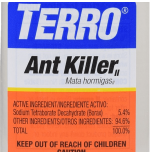So, I've followed the TFP directions for adding borates to U.S.S My Pool. I'm very pleased with the results so far. But, gosh, those Taylor test strips are hard to read. I consider myself pretty good at distinguishing hues, but the indicator does not color uniformly and the 50 and 75 are hard to differentiate. I'm looking in to the mannitol test that Matt posted here. In the meantime: close enough. However:
I've noticed a ton of dead flies accumulating. Which is fine by me; I'd rather have them dead in the water than alive in my face. But, that got me thinking about bees. A quick search of the forum confirmed what I should've already realized: borox kills bees. I haven't seen any dead bees in the water, though. Maybe, it's like Matt suggests and "bees don't come to my pool because the scouts never return to the nest." It's fine if they're just staying away, but I'd be disappointed (and more than a little ashamed) to find out I was killing all of the local colonies.
Does anyone have any data on the effects of borates (at the 50-75 ppm level) on pollinators?
I've noticed a ton of dead flies accumulating. Which is fine by me; I'd rather have them dead in the water than alive in my face. But, that got me thinking about bees. A quick search of the forum confirmed what I should've already realized: borox kills bees. I haven't seen any dead bees in the water, though. Maybe, it's like Matt suggests and "bees don't come to my pool because the scouts never return to the nest." It's fine if they're just staying away, but I'd be disappointed (and more than a little ashamed) to find out I was killing all of the local colonies.
Does anyone have any data on the effects of borates (at the 50-75 ppm level) on pollinators?


